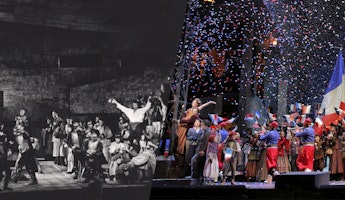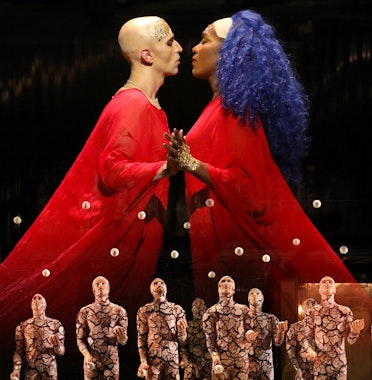Blog
May 12, 2025
The Fickle Aria (or, How to Get Away with Everything by Singing)
It’s not always immediately obvious when a composer has written a hit—but Giuseppe Verdi knew exactly what he had with “La donna è mobile.” So much so, in fact, that he went to extraordinary lengths to keep it under wraps. During final rehearsals for Rigoletto, Verdi locked the score and libretto away when not in use and restricted access to only the most essential personnel. Even the opera’s lead tenor, Raffaele Mirate, was only allowed to first see his big aria a few nights before opening. Verdi, half-jokingly, forbade him from so much as thinking about it outside rehearsal. (There’s no word on whether Mirate complied. Let’s assume he tried.)
But Verdi was right to be paranoid. As the Venice audience streamed out of the 1851 premiere, they were already singing it. By morning, “La donna è mobile” echoed from alleyways, gondolas, and cafés. The aria had escaped—and it’s never really been contained since. It’s now lodged firmly in the canon of World’s Greatest Hits, a tune that’s popped up everywhere from children’s cartoons to commercials for tomato sauce. It's been sung by the greatest tenors that ever lived, here is Luciano Pavarotti performing it for the 1982 Rigoletto movie. But that catchiness, as Verdi knew, is only the surface. What makes the aria so brilliant—so dangerous—is not its melody, but its meaning.
To understand “La donna è mobile,” you have to understand the man singing it: the Duke of Mantua. Now, Verdi’s Duke is loosely inspired by King François I of France, a real-life monarch known as much for his courtly charm and artistic patronage as for his prolific (and unrepentant) womanizing. François is believed to have been the king who institutionalized the idea of a royal mistress. He was married, yes—twice—but that didn’t stop him from cultivating a culture where seduction was not a vice but a pastime.
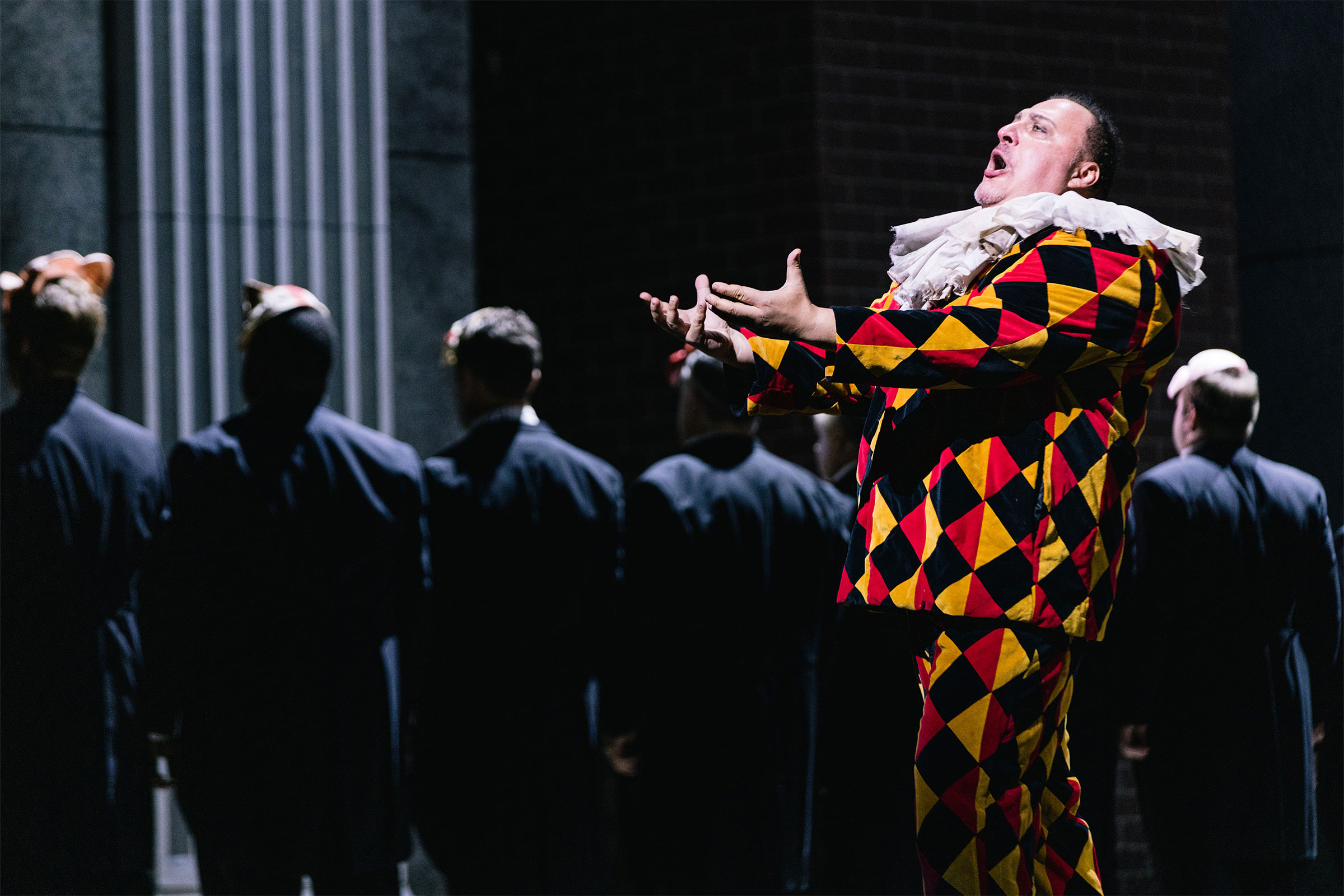
By the time Verdi got hold of him—via Victor Hugo’s scandalous banned play Le Roi s'amuse—the king had morphed into something even darker: not just a man who seduces, but one who destroys without even noticing. Onstage, the Duke is all smiles and seduction, his cruelty hidden under layers of charm. He’s handsome, sure. He’s fun at parties. And he treats women the way a magician treats a deck of cards—shuffle, pull one out, toss it over your shoulder when the trick’s done.
“La donna è mobile” arrives near the beginning of Act III, light as air and sharp as a knife. The Duke, waiting to seduce another woman (the assassin’s sister, naturally), sings about how women are fickle, deceitful, and not to be trusted. “Women are flighty,” he croons. “Like a feather in the wind.” He doesn’t know that his “beloved” Gilda is nearby, listening. He wouldn’t care.
The irony here—so rich it’s almost comedic—is that the aria we’ve come to associate as joyous is brutal. It is a song about how love is a joke, and women are the punchline. It’s a moment of pure dramatic irony: the audience knows what the Duke doesn’t, that Gilda is hearing everything. But the crueler irony is this—Gilda still loves him. Even after hearing him sing those words. Even knowing what he is.
And that love, that unwavering, undeserved love, becomes the engine of the opera’s final tragedy.
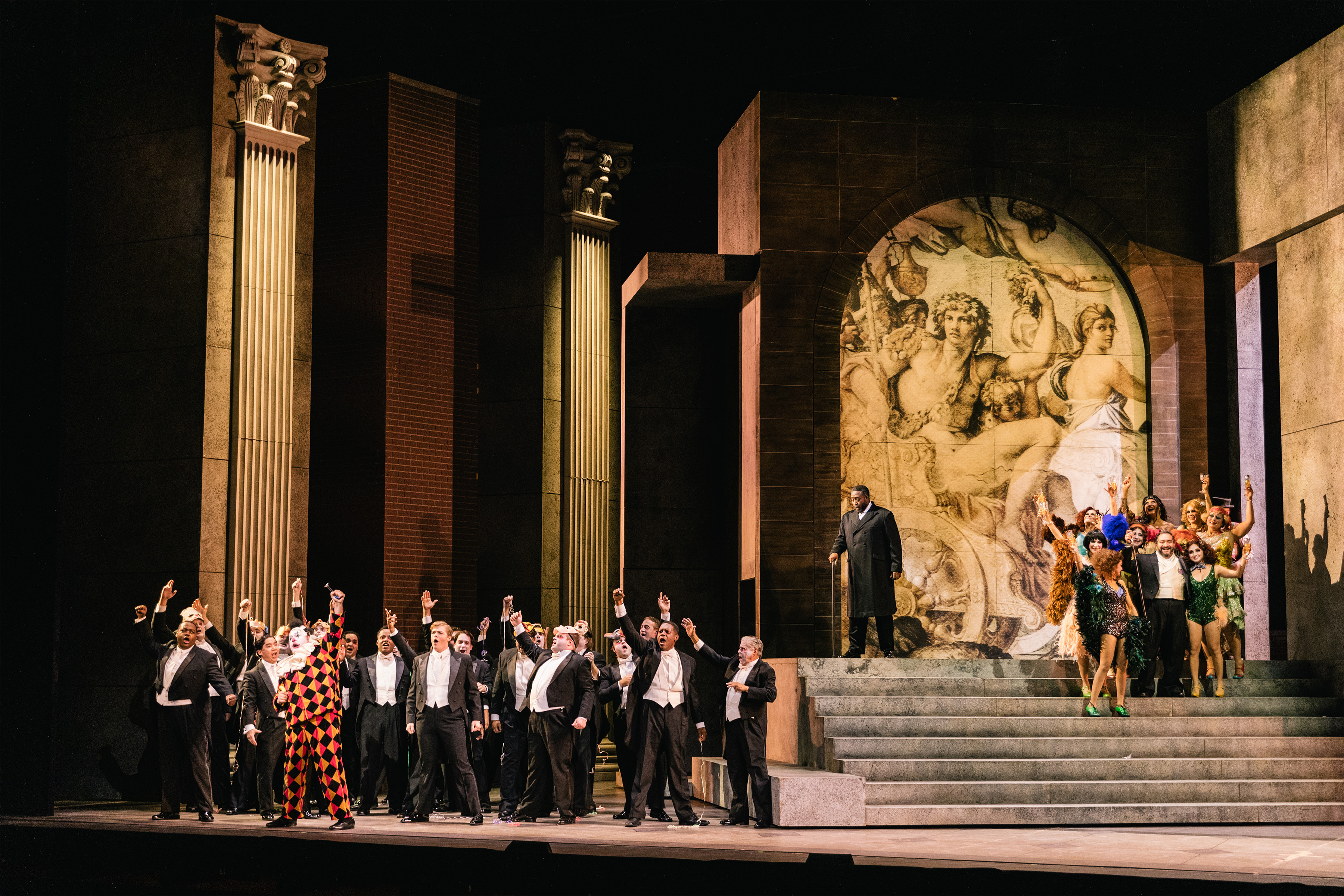
Gilda, in one last terrible twist, decides to die in the Duke’s place. She disguises herself and is stabbed by the assassin hired to kill the Duke. When her father, Rigoletto, goes to dispose of “the Duke’s body,” what does he hear drifting in from the street? “La donna è mobile”—the aria, again, cheerful and oblivious. The Duke is unscathed. Gilda is dead. The jester, who only wanted justice, is left holding a sack of grief.
It’s one of Verdi’s finest moments: this impossible collision of mood and meaning. The music is light, the outcome is devastating. The aria becomes a symbol not of joy, but of the very cruelty the opera condemns.
So yes—sing along, by all means. Whistle the tune, let it live rent-free in your head. But know that behind its sparkle lies something darker. La donna è mobile is not just a catchy tune—it’s the calling card of a man who breaks hearts for sport. And in the end, it’s not just Gilda who falls for the music. We all do.
If you want to see this aria performed live on our stage, get tickets for Rigoletto by clicking here.






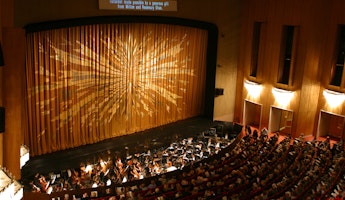

/03-cosi/_dsc0996_pr.jpg?format=auto&fit=crop&w=345&h=200&auto=format)




